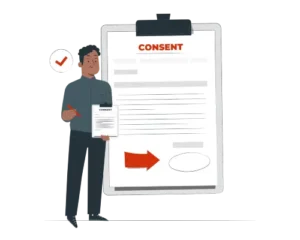Implementation of RPA enables enterprises to optimize their accounts payable transaction costs. By minimizing human intervention in invoice processing, automating approvals and exceptions, companies can reduce the turnaround times drastically. Highly repetitive and laborious accounts processes such as invoice processing make the ideal use cases for robotic process automation. Not only do organizations benefit from going paperless, but they make significant gains in terms of invoice processing speed, accuracy and costs.
Challenges in the conventional resume screening process
Enterprises on a fast growth trajectory expand at a rapid scale. It is a near-impossible task for recruitment teams to screen hundreds of resumes manually and make accurate decisions all the time. The high volume of resumes and repetitive screening process becomes a challenge for human resources teams. The velocity of hiring impacts organizational goals and initiatives significantly. Ultimately, poor hiring decisions cost the company in more ways than one. A bad hire can cost a company up to 30% of an employee’s first-year earnings as reported by the U.S Department of Labor.
In addition, a single job application can attract around 250 applicants on average. This number grows for the most in-demand positions. Here are some of the challenges at the backend with traditional resume screening:
- Recruiters usually scan resumes in 6-7 seconds. This could lead to multiple human errors.
- Out of hundreds of resumes, a select few make it to the next round. It is a herculean process to shortlist and cull this selection out of all applications.
- With manual intervention, there is some amount of bias that can lead to a flawed hiring process
- Some of the more creative resumes are sometimes rejected by the ATS, missing out on the more appropriate fits.
- Organizations that hire in bulk deal with thousands of resumes every week
Challenges in the conventional resume screening process
Implementation of RPA enables enterprises to optimize their accounts payable transaction costs. By minimizing human intervention in invoice processing, automating approvals and exceptions, companies can reduce the turnaround times drastically. Highly repetitive and laborious accounts processes such as invoice processing make the ideal use cases for robotic process automation. Not only do organizations benefit from going paperless, but they make significant gains in terms of invoice processing speed, accuracy and costs.
RPA solutions in resume screening: How it works
RPA streamlines the entire recruitment process from end-to-end. Leveraging intelligent automation, organizations can shortlist resumes and candidates on a simple, rules-engine that aligns the right candidates with the skillsets required.
Here’s what the standard offering for an RPA bot solution for resume screening looks like:
The RPA bot has access to multiple job portals to download resumes submitted by applicants. The bot will download the resumes submitted by job seekers and store them for further action.
Once the documents have been retrieved, the bot will organize the resumes into folders for further action.
Once the resumes have been categorized, the bot will match them against pre-defined criteria set by the recruiter. After screening through all the resumes, the RPA bot will classify the resumes into two categories: those that meet the threshold and those that don’t. The bot will retrieve the name and email of the candidates that meet the criteria and put the values into a spreadsheet with a link to the resume path. The threshold configuration and criteria can be set and changed by the recruiters.
The bot can then be configured to complete follow-up actions and share the resume screening report with the recruiter, which includes numbers of resumes screened, job postings covered, and success ratio.
If needed the bot can send predefined online assessments/tests to the selected candidates. It can collect the results and use them in sorting/short listings candidates.
RPA use case - Building resume screening bot using RPATech
Each industry and sector has its specific recruitment and resume screening process that can be automated. RPATech is an intelligent automation company that provides a customized process for filtering resumes based on criteria and this process can be tweaked according to clients’ requirements.
Typically, in resume screening, emails with resume attachments need to be sorted and the attached resumes need to be downloaded. One can leverage a platform such as UiPath to implement this process.
The entire process can be broken down into two parts: dispatcher and performer. The dispatcher will scan through the email or application tracking system, collect all the relevant data, download the PDFs and add to a folder while storing all other relevant information into a spreadsheet. The data is picked up from the excel file and added to the respective fields in the CRM application for further processing.
After this, the bot will screen the applicants against pre-defined criteria, skillsets, etc to shortlist the ones that meet the threshold. This entire process from sorting through email to uploading information in the CRM application and screening the resumes can be accomplished in a matter of minutes. Automation in HR can save hiring time by 40% and select the right talent for the role.
Benefits of automating resume sorting and screening
With intelligent automation and the addition of artificial intelligence, bots are now capable of achieving far more sophisticated results and efficiency.
Here are some of the advantages of automating resume screening with RPA:
1. Enable recruiters to focus on strategic activities
By implementing an RPA solution, recruiters and HR professionals can shift their focus on strategic tasks from transactional activities. This would enable organisations to get significant value from their HR resources.
2. Higher accuracy
As mentioned earlier, an average recruiter takes 6-7 seconds to scan a resume. This may lead to human errors such as short listing unsuitable resumes or ignoring appropriate applications. There could also be biases that could creep in while scrutinizing resumes. An RPA enabled resume screening solution would implement accurate and rule-based screening of resumes without any scope for human errors.
3. Quicker processing of resumes
Quite often, resumes aren’t scrutinized on time which delays interviews with prospective candidates. This may cause an organization to lose out on potential talent as the latter would be scouted by other firms as well. However, thanks to the RPA enabled resume screening platform, resumes can be screened quickly. Certain platforms would automate the next steps such as notifying candidates and scheduling interviews.
4. Higher efficiency and scale
Organisations that recruit in bulk have to deal with thousands of resumes every week. A highly efficient and scalable approach can organise hundreds of resumes within a span of minutes
5. Conclusion
Resume screening automation enables shortlisting potential candidates in a short span of time. The bot can send the shortlisted candidates to HR and automate the next steps such as mailing the interview schedule to candidates. Leveraging RPA for resume screening helps eliminate paperwork and administrative overheads, streamlining the recruitment journey and finding a fast, accurate, cost-effective way to find the right hire. Thus organizations across industries can enjoy the benefits of intelligent automation.




